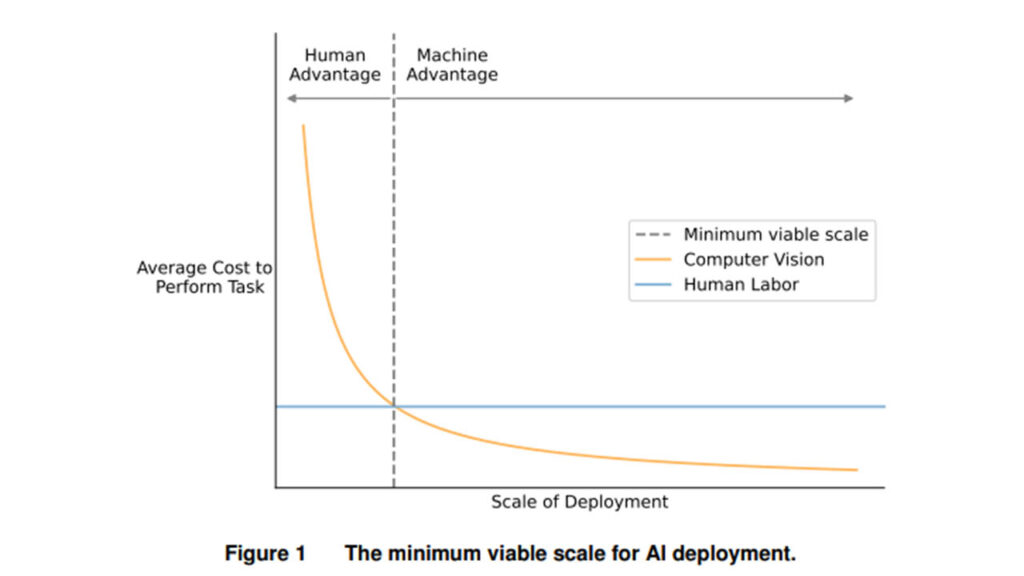Artificial Intelligence (AI) is a technology that has impacted various industries, fostering innovation while also posing challenges regarding the future of employment.
Although AI has the potential to automate certain jobs, a recent study from the Massachusetts Institute of Technology (MIT) suggests that deploying this technology remains prohibitively expensive. Consequently, employers are likely to prefer retaining their human workforce, at least for the time being.
The study, titled “Beyond AI Exposure” analyzed the actual costs of implementing AI systems capable of automating visual tasks, such as quality inspection.

Researchers found that, in many cases, the economic benefit of automation does not outweigh its high cost.
For instance, for a small bakery, visually automating ingredient inspection would only save $14,000 annually, well below the cost of implementing the technology.
In conclusion, even though AI can already perform many human tasks, its adoption still lacks economic sense for several companies.
The study focuses on modeling the real cost of implementing computer vision systems capable of automating visual tasks, rather than just analyzing which jobs could theoretically be automated. This economic perspective allows for a more realistic prediction of how AI will impact employment.

Researchers first surveyed workers to determine the required performance of an automated system. They then modeled the cost of building such a system and evaluated whether AI adoption was economically attractive for businesses.
The bakery example illustrates why considering cost is essential. Although visually automating ingredient inspection is feasible with AI, implementing the technology would cost much more than the relatively small savings in wages. Therefore, it would not make financial sense for a small business.
While AI continues to progress rapidly, deploying models capable of matching or surpassing human performance in various tasks is currently very expensive. For this reason, most companies still find it more cost-effective to maintain human workers for these tasks, even if AI alternatives already exist.
This suggests that, although certain jobs could gradually be automated in the future, a massive disruption of employment due to AI is unlikely in the short term. Concerns about imminent waves of technological unemployment may be overstated.
However, as AI becomes cheaper and more accessible, widespread adoption becomes more likely. Therefore, workers should still prepare by developing skills that make them less susceptible to automation.
For more information, you can access the MIT research through this link.